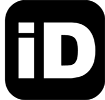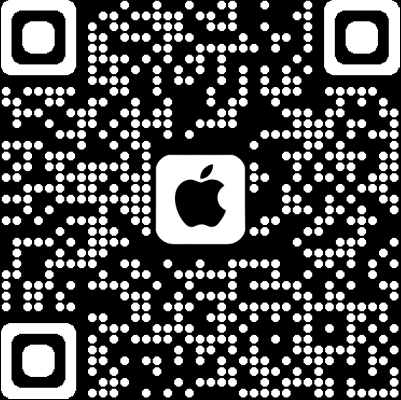
The biometric passport is a document that certifies your identity and allows you to travel abroad. When creating your application, it is important that your passport photo is valid and correctly taken.
It must be in line with rules at national and international (ICAO) level. If you decide to create a photo on your own, be sure to specifically check national standards as they might be stricter than those of ICAO.
The Size of Passport Photo: Digital and Printed
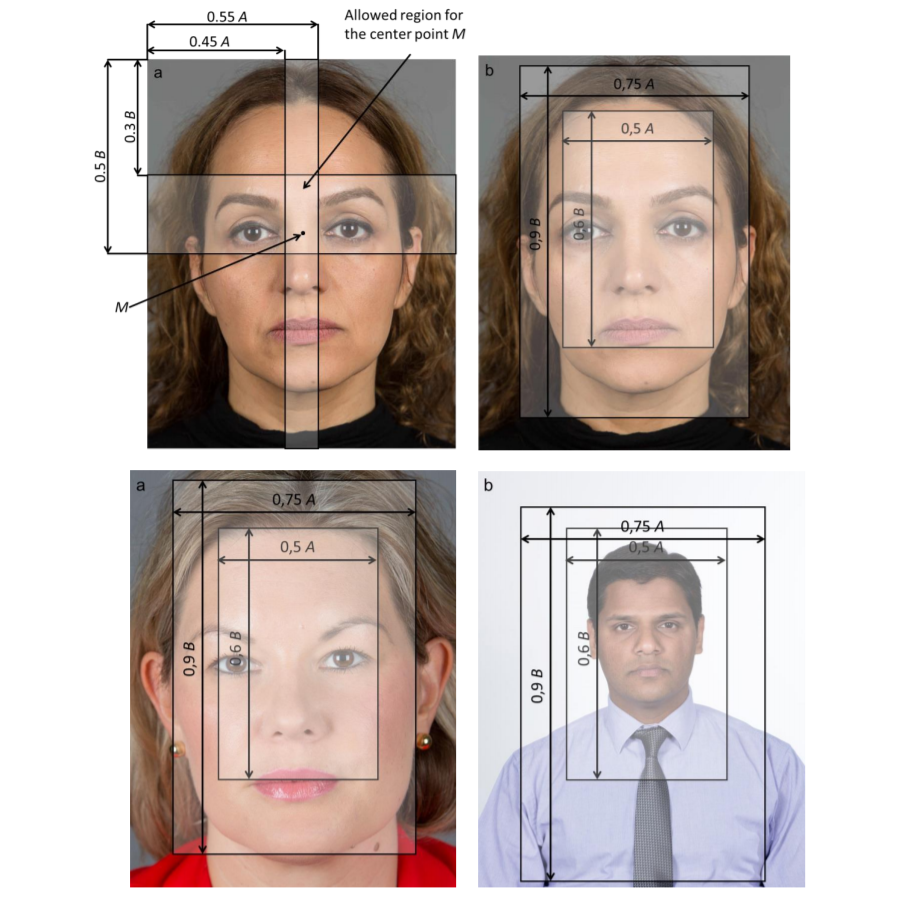
Each country can decide on its own format, so make sure to note that before taking a photo on your own. Additionally, some countries have different requirements for printed and digital format (like Ireland). In Europe the official photo size is 45mm high by 35mm wide.
The size of the face (from the bottom of the chin to the top of the head (excluding the hair)) varies from country to country. In most cases, your face needs to take up around 70 – 80 percent of the frame and you should see the top of the shoulders. More and more countries transfer to digital public services and accept digital photo format, specifying dimensions in pixels and file size.
What are the international mandatory regulations for passport photo?
The general rule is that photo must be taken recently (usually no longer than 6 months, but depends on the country). It should clearly resemble you and be easily read by biometric machines in airports.
1. LIGHTING/ COLOR
The photo should have a good balance between overexposure and underexposure. It should be high contrast, with no shadow on the face or in the background. A color photo is required for digital format, and a black and white photograph is recommended for printed forms, but colour is also accepted.
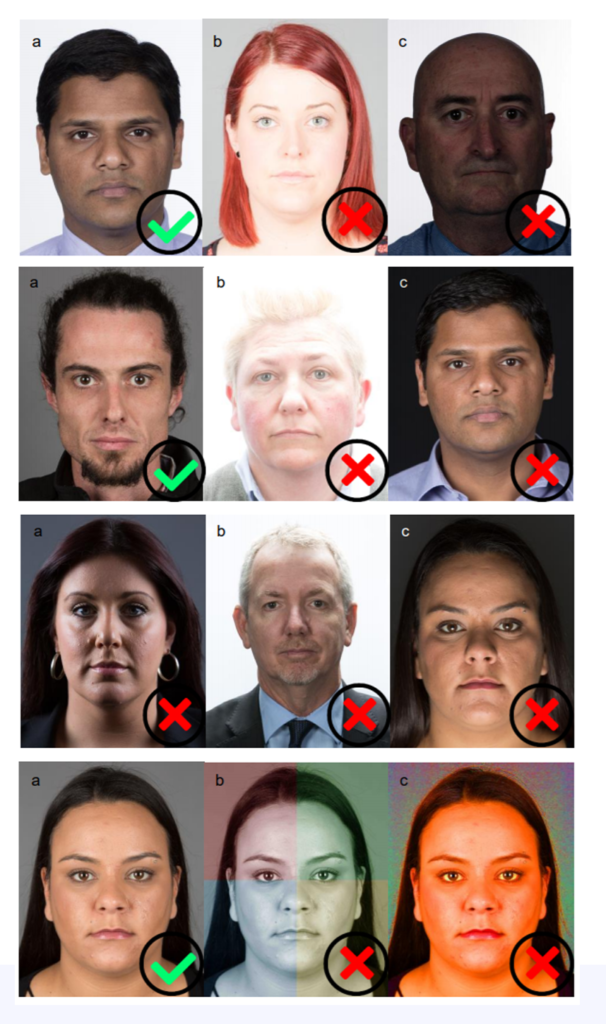

2. PHOTO QUALITY
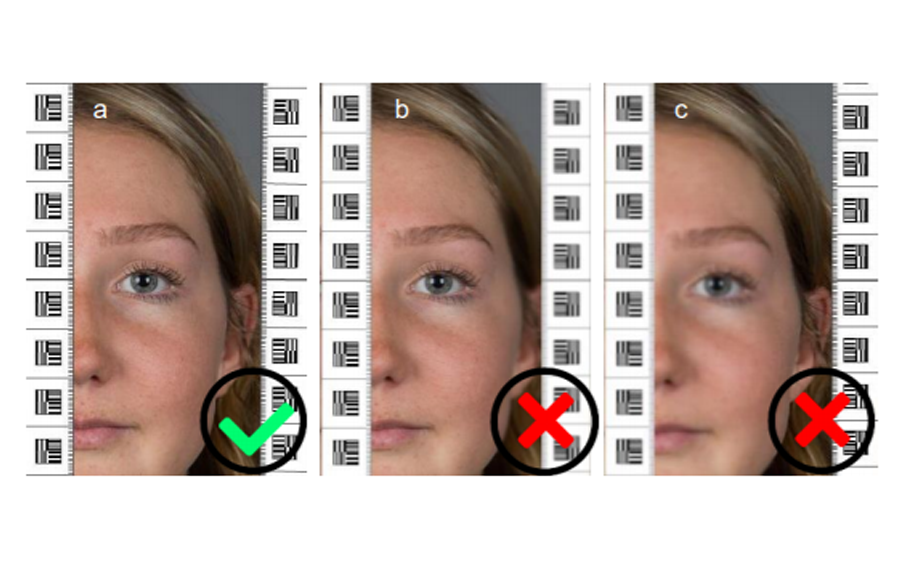
The photo must be of high quality (clear, without traces or folding lines). If you submit it in digital format, make sure that the file size is not too big or too small and that it has the appropriate resolution and image depth. (See photo size). The photo must not be distorted in any way such as barrel or compression artifacts. For printed photos, there must not be any creases or ink marks. Photos should be in clear focus and digital alterations are not permitted.
3. Background
The background should be in plain color. In Ireland, it needs to be plain, more specifically cream, white or light grey. No objects should be visible within the background.
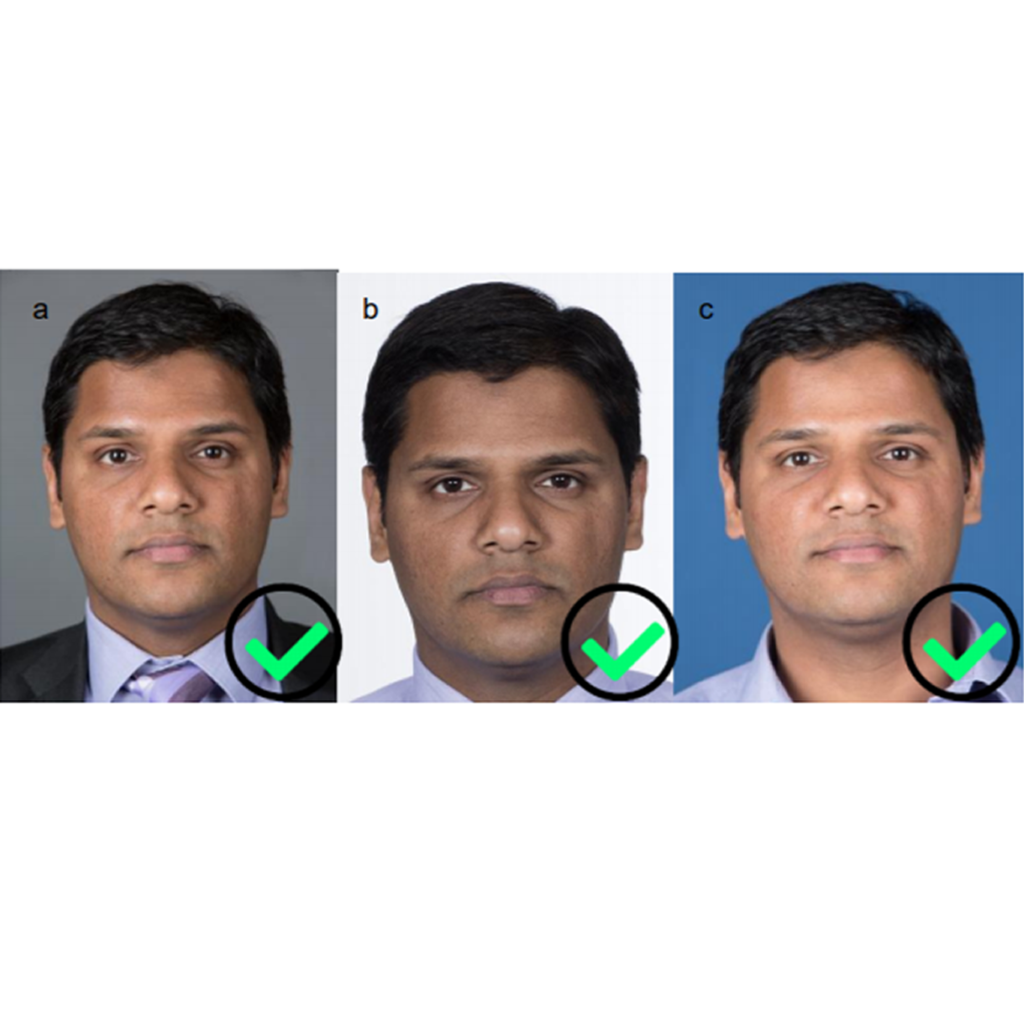

4. HEAD IN OFFICIAL PHOTO
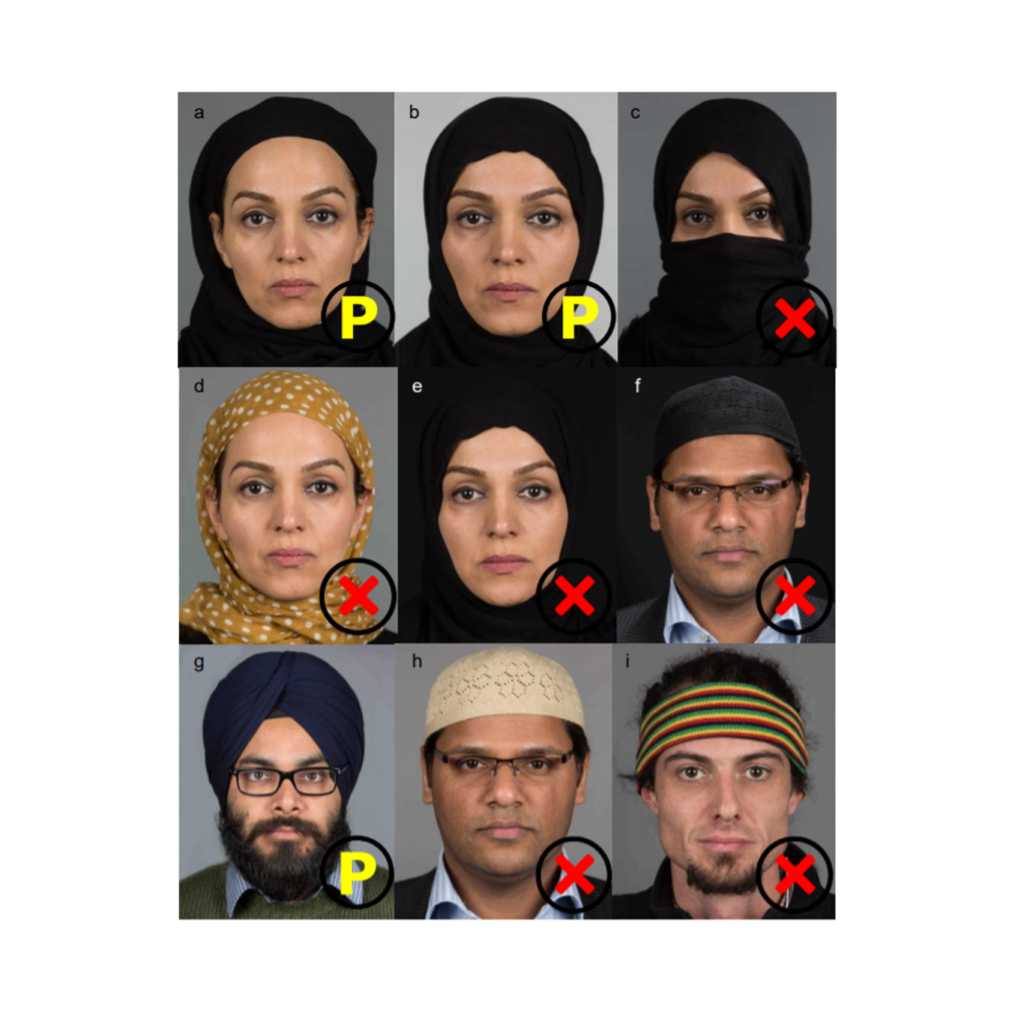
Your head must be bare, without a hat, scarf, headband or any other decorative object and your hair must be seen. No visible accessories should be noticeable on your official photo. That includes barrettes, elastic bands and other extras. If your hair is bothering you, tie it in a ponytail behind your head. It will not be visible in the photo.
Only little make-up is allowed because it can affect computerized as well as human facial recognition capabilities. The photograph needs to show the top of your head to the mid torso with a little bit of space inbetween.


5. EYE DIRECTION AND HEAD POSITION
The subject must face the lens, hold head straight and look directly into the lens. A neutral expression must be maintained with closed mouth.



6. FACE AND EYES
Face must be clear. Eyes must be open. The aim is to recognize you as well as possible.


7. GLASSES
Thick frames are prohibited on an id photo. Glasses must not obscure the eyes, therefore tinted glasses are prohibited. Note that there should be also no reflection on the glasses. Due to high number of refused photos, we kindly ask you to remove glasses when taking photo with Smartphone iD app.


8. BODY
Wearing clothes is obligatory and it cannot be uniform.

The photo must show only your head, neck and shoulders.

Cick hear to read the official document on the biometric passport photos by the ICAO.
How to make succesful passport photos with Smartphone iD?
Stand one meter from wall to avoid the shadow.

Hold your arm straight at the level of your shoulders.

Fit your body within the mask.

Your back camera can produce a higher quality picture

Remember if your iD photos are not accepted, the process of getting passport or any other official document will be prolonged. So let our team make sure that your photo conforms with the national and ICAO standards, and spare yourself the unease about a possible refusal!
Our software respects the standards of ISO/IEC 1979465 and the ICAO (International Civil Aviation Organisation) that guarantees ID photo quality and conformity with all the requirements (format, face angles, brightness, resolution etc.) Certain countries require stricter rules at national level that are programmed into our software.


